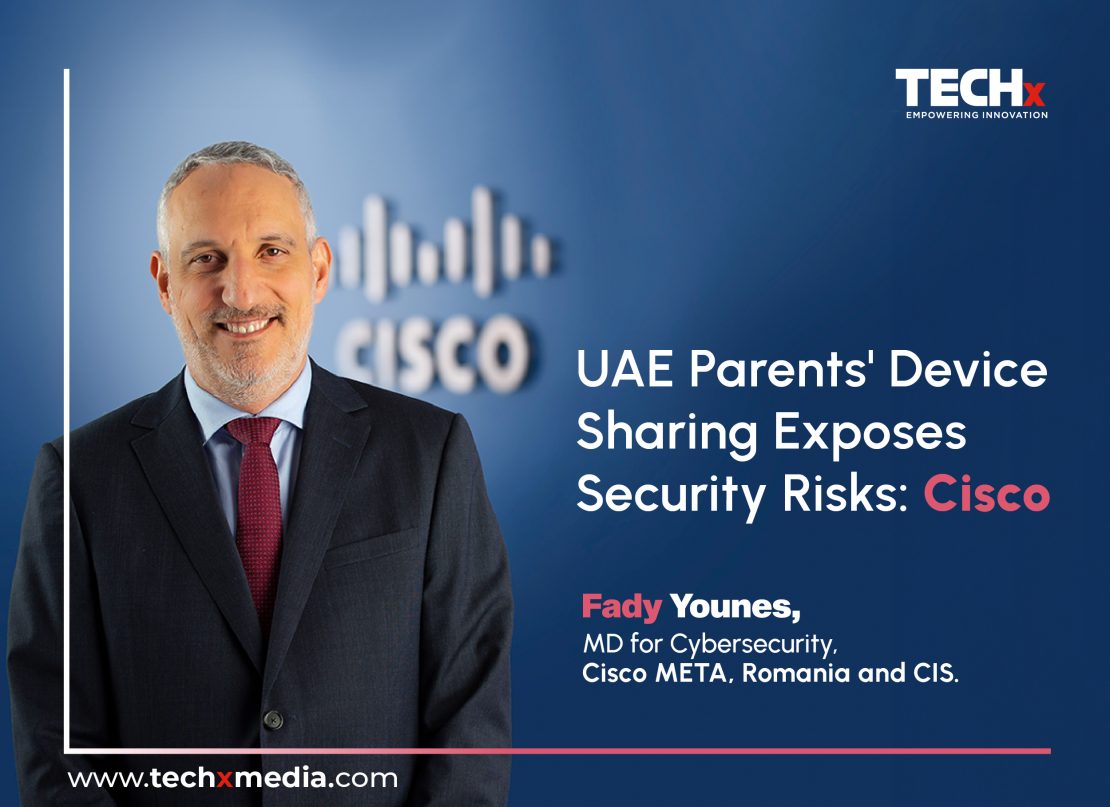
As hybrid work continues to shape the modern workplace, new challenges are emerging for IT decision-makers, especially when it comes to securing devices in home environments. A recent Cisco study has shed light on a growing security issue among working parents in the UAE, revealing that many are unknowingly exposing sensitive work data to security risks due to device sharing with children.
The study found that 40% of parents who share their work devices with children allow unsupervised access, fully aware of the passcodes. Even more concerning, 54% of parents leave devices unsupervised, even if children don’t have access to passcodes. These behaviors present significant vulnerabilities that organizations cannot afford to ignore as they navigate the complexities of hybrid work.
Fady Younes, Managing Director for Cybersecurity at Cisco Middle East, Africa, Türkiye, Romania, and CIS, emphasized the risks posed by this shift. “In the UAE, the rise of remote work and shared devices within families presents significant security challenges,” Younes said. “It is crucial for organizations to implement robust security measures such as multi-factor authentication and zero-trust frameworks while also considering the unique home environments of employees.”
The study also revealed that 91% of working parents in the UAE share personal devices used for work with their children, highlighting the need for a broader security approach. IT teams must go beyond traditional risks and adapt to the real-world environments in which employees operate, where convenience often takes precedence over security.
Among those sharing devices, 62% rely on “strong” passwords while only 24% use multi-factor authentication (MFA) for sensitive work tasks. This indicates a significant gap in security practices, leaving devices vulnerable to unauthorized access. With two-thirds of connected household devices shared among family members—up from 65% two years ago—IT teams must take immediate action to secure both managed and unmanaged devices across various environments.
To mitigate security risks associated with device sharing, Cisco recommends several best practices. First, organizations should work with employees by allowing guest user accounts, which provide family members with limited access while maintaining corporate cybersecurity protections. Second, IT teams should enforce multi-factor authentication (MFA) or two-factor authentication (2FA) to ensure only authorized users access sensitive data.
Cisco also stresses the importance of protecting business-critical data by using additional security measures like Zero Trust Network Access (ZTNA) or VPNs. Regular data backups are essential in the event of device damage or accidental loss, ensuring business continuity. Finally, educating users about cybersecurity threats and best practices is crucial to fostering a culture of security awareness across the workforce.
As remote work continues to rise, securing devices in home environments is no longer optional. By addressing the risks posed by device sharing, organizations can better protect sensitive work data and help employees balance their work and family lives securely.